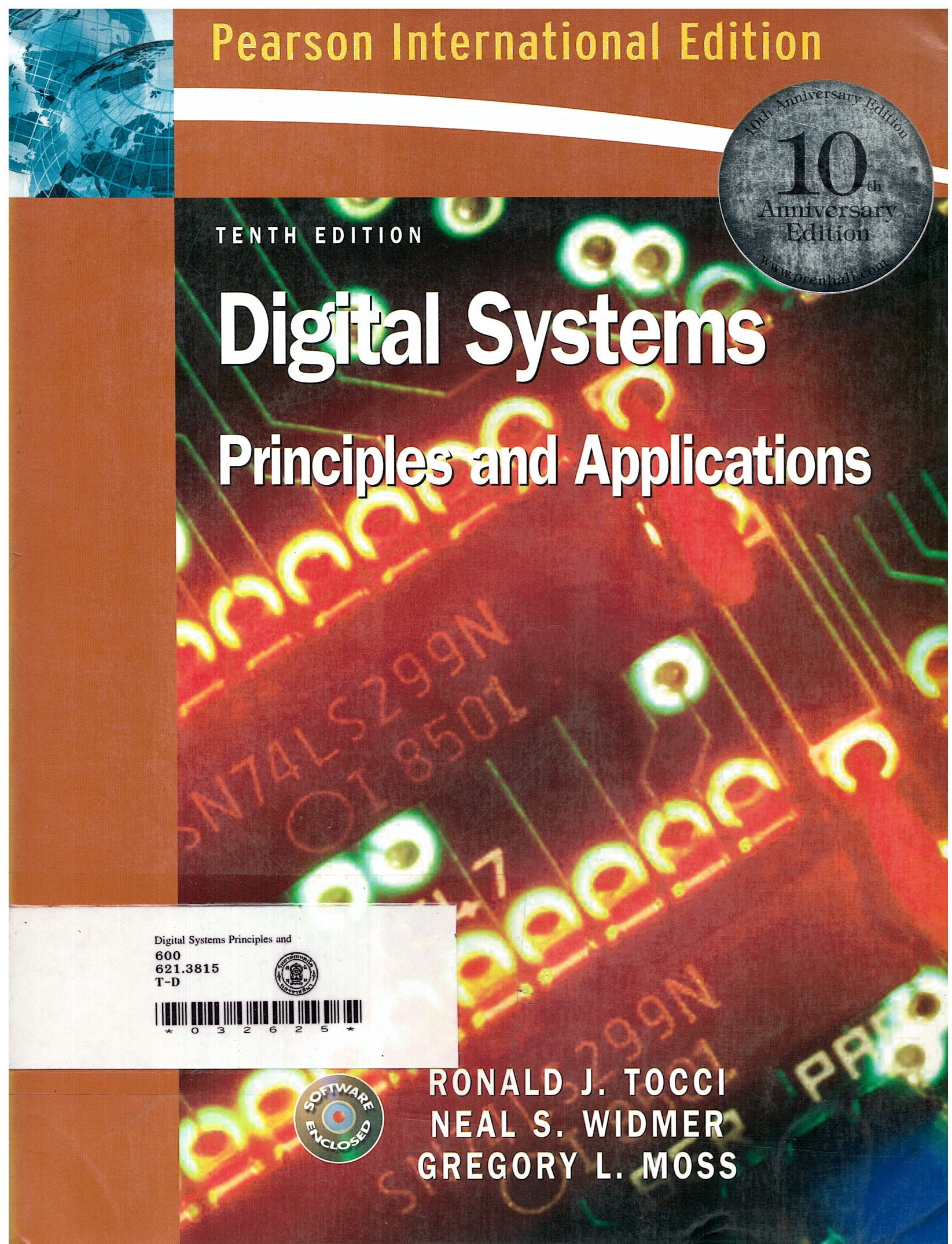ข้อมูลทรัพยากร

Digital Systems Principles and Applications.
ประเภททรัพยากร : CD/DVD/VCD
ชั้นเก็บ : ตู้ 9 ชั้น 4 ฝั่งซ้าย
หมวด : 000
เลขหมู่หนังสือ : 621.3815
สำนักพิมพ์ : Pearson.
ผู้แต่ง : Tocci, Ronald J.
ยอดคงเหลือ : 3
เนื้อหาย่อ : This book is a comprehensive study of the principles and techniques of mod-
ern digital systems. It teaches the fundamental principles of digital systems
and covers thoroughly both traditional and modern methods of applying dig-
ital design and development techniques, including how to manage a systems-
level project. The book is intended for use in two- and four-year programs in
technology, engineering, and computer science. Although a background in
basic electronics is helpful, most of the material requires no electronics
training. Portions of the text that use electronics concepts can be skipped
without adversely affecting the comprehension of the logic principles.
General Improvements
The tenth edition of Digital Systems reflects the authors' views of the
direction of modern digital electronics. In industry today, we see the impor-
tance of getting a product to market very quickly. The use of modern design
tools, CPLDs, and FPGAs allows engineers to progress from concept to func-
tional silicon very quickly. Microcontrollers have taken over many applica-
tions that once were implemented by digital circuits, and DSP has been
used to replace many analog circuits. It is amazing that microcontrollers,
DSP, and all the necessary glue logic can now be consolidated onto a single
FPGA using a hardware description language with advanced development
tools. Today's students must be exposed to these modern tools, even in an
introductory course. It is every educator's responsibility to find the best
way to prepare graduates for the work they will encounter in their profes-
sional lives.
The standard SSI and MSI parts that have served as "bricks and mortar"
in the building of digital systems for nearly 40 years are now nearing obso-
lescence. Many of the techniques that have been taught over that time have
focused on optimizing circuits that are built from these outmoded devices.
The topics that are uniquely suited to applying the old technology but do not
contribute to an understanding of the new technology must be removed from